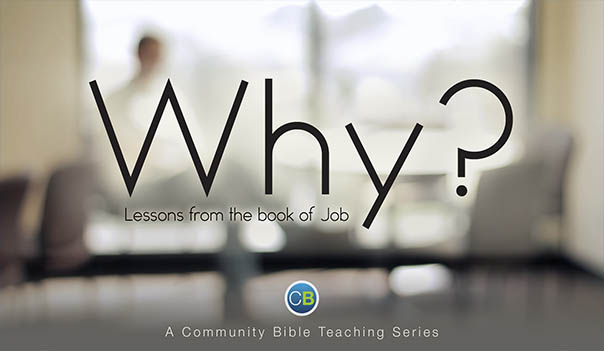Humanity desires understanding. (To watch the full sermon from Week 5 of our “Why?” series, Click Here)
We long for order. It’s an echo of God’s creative design. If we came from nothing and we are going nowhere, we would not have a predisposition toward order or a natural desire to understand.
Because we were created in the image of an orderly and knowledgeable God, we are naturally drawn toward a belief that explanations should exist. We long for understanding. We assume meaning in everything.
Unfortunately this God-created desire is often filled with counterfeits. We quickly jump to conclusions and explanations which are not accurate. One of the best examples is karma.
Karma is a simple law of cause and effect. It’s the belief that everything happens for a reason (contrast this with the Christian belief that everything happens for a thousand reasons). Karma says:
- You get what you deserve
- What goes around comes around
- You reap what you sow
It’s true in many cases. There is a principle of cause and effect. I say it to my kids so often that they can repeat it back to me: good choices lead to good consequences and bad choices lead to bad consequences. It’s a great general principle.
It’s a principle which should change our actions. We should always consider the cause and effect nature of our actions.
However, Karma takes a good general principle and turns it into an unyielding law. Everything becomes about cause and effect.
- Why are some poor and some rich? It’s because of some past decision (possibly from another life) which has caused the divide.
- Why does one live and one die? It must be because of some inward fault we cannot see.
- Why do bad things happen to good people? It must be because they aren’t really good people.
Karma takes a general principle and by turning it into a concrete law, creates the assumption that everything we get, we deserve.
Yet the Christian believes differently.
The Christian believes the world of cause and effect has been invaded by a gracious God.
Karma says we get what we deserve; grace says we get what God deserves.
Which do you prefer?
Grace is greater than karma. It’s a better way to live.
It’s better because karma is wrong. Cancer patients don’t deserve cancer. Even if they made bad choices which led to the disease, not every person who makes those choices gets the disease. Women don’t deserve miscarriages. Tragedies happen every day which are not the direct effect of a person’s actions, choices, or inward condition.
In an attempt to explain the mysteries of life, karma gives the wrong explanation. Bad things do happen to seemingly good people. While we don’t fully understand the reasons why, we can take hope in knowing that God controls our darkest days.
In the midst of this world, we can take great hope in knowing that God has chosen a way which is better than karma. He has chosen grace.
When we receive grace—the love and forgiveness of God which is freely given and completely unmerited on our behalf—we give grace to others.
When our eyes open to grace, we are quick to reject the cold, dark law of cause and effect.
Karma has an appeal. In the midst of a chaotic world, it offers order and control. Yet there is a way far better than karma, it is the way of grace.
To hear of a living example of grace, watch this:




8 Responses to Karma or Grace?